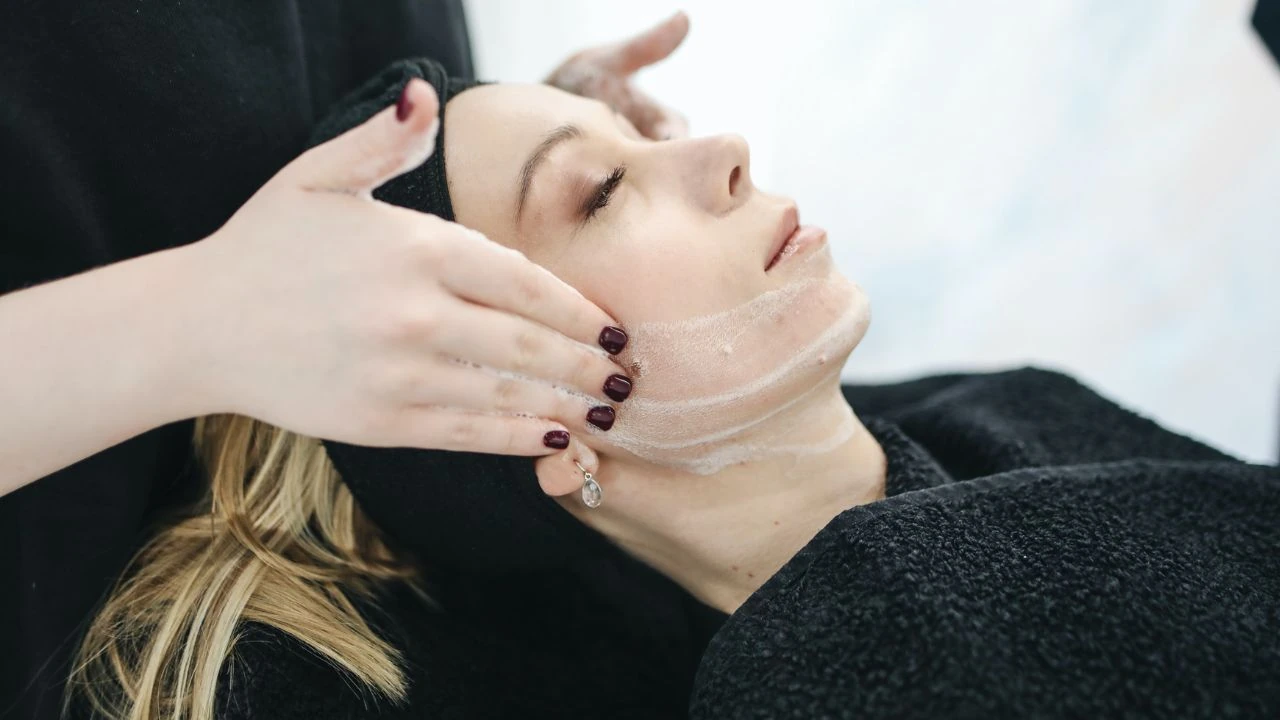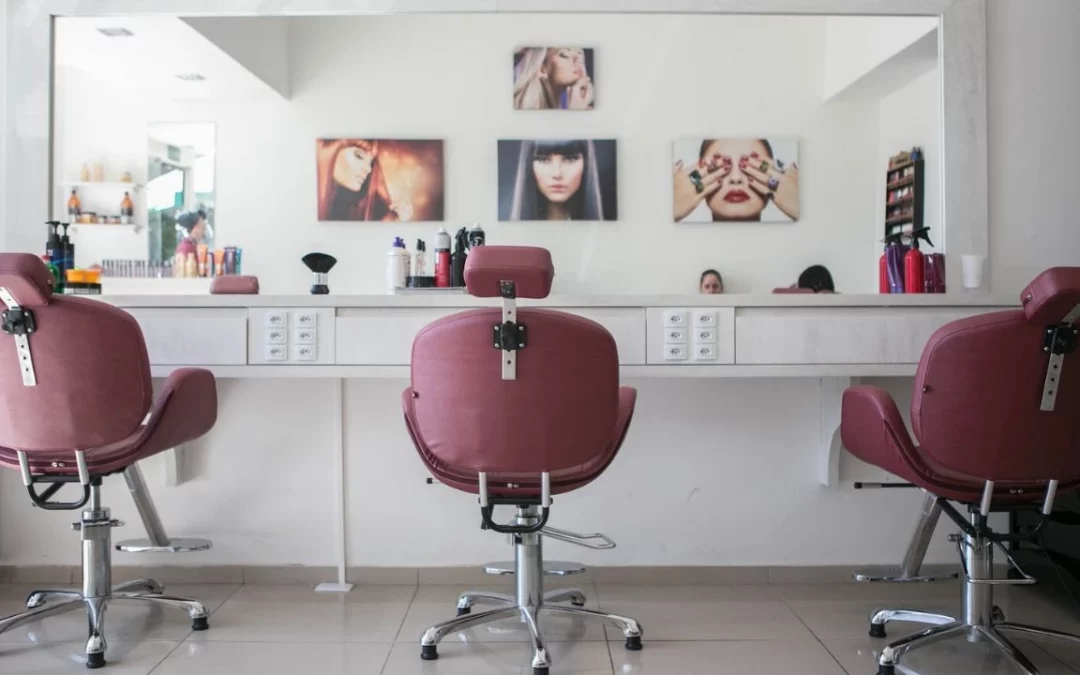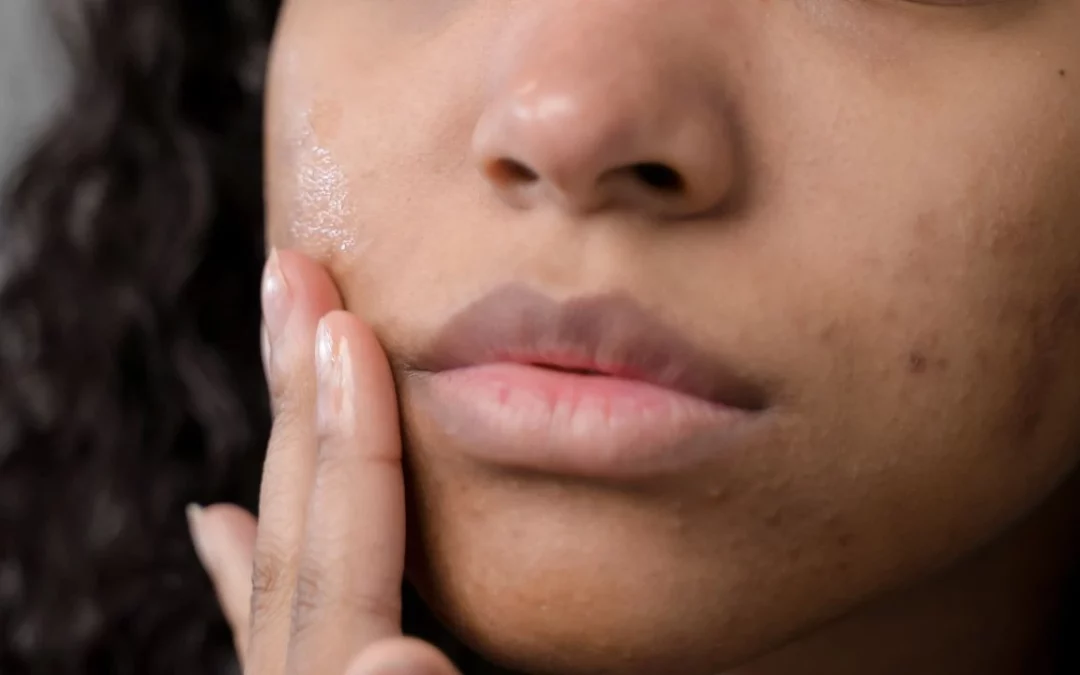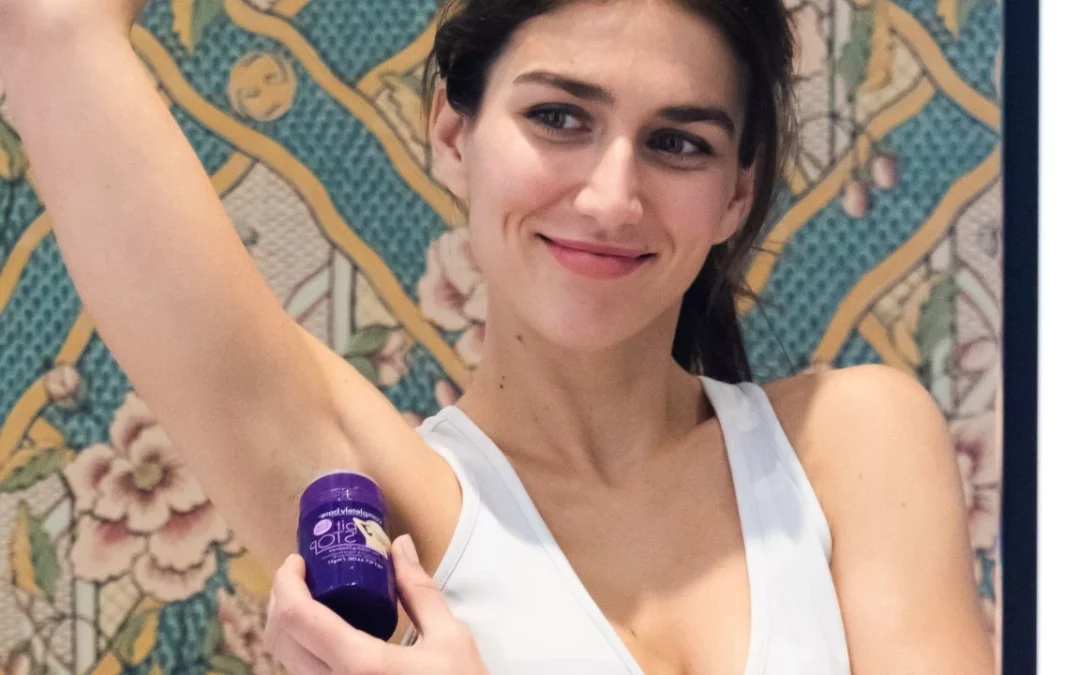Skincare refers to the practice of taking care of the skin to maintain its health, appearance, and overall well-being. The skin is the largest organ of the body and serves several important functions such as protecting the body from external factors, regulating body temperature, and excreting waste products.
A skin care routine typically involves a combination of cleansing, moisturizing, and protection from the sun’s harmful UV rays. Skincare products can range from basic soap and water to more complex formulations containing active ingredients like antioxidants, retinoids, and alpha-hydroxy acids.
In addition to a regular skin care routine, other factors that can impact skin health include genetics, lifestyle habits (such as diet and exercise), and environmental factors (such as pollution and climate). Proper skin care practices can help improve skin texture, reduce signs of aging, and prevent skin problems such as acne, dryness, and hyperpigmentation.
It’s important to note that skincare is not a one-size-fits-all approach, as each person’s skin type and concerns may vary. Consulting with a dermatologist or skincare professional can help determine the best skin care routine and products for individual needs.
Skin care Routine Process
1. Cleanser
Start by washing your face with a gentle cleanser to remove any dirt, oil, and makeup that may have accumulated on your skin. Choose a cleanser that suits your skin type, such as a cream cleanser for dry skin or a gel cleanser for oily skin.
2. Toner
Apply a toner to help balance your skin’s pH levels and remove any remaining impurities that your cleanser may have missed. Toners can also help prepare your skin for the next steps in your skin care routine.
3. Serum
Apply a serum that contains active ingredients such as antioxidants, peptides, or hyaluronic acid to target specific skincare concerns, such as fine lines, dark spots, or dryness. Gently pat the serum into your skin, and let it absorb for a few minutes.
4. Eye Cream
Use a specialized eye cream to moisturize and protect the delicate skin around your eyes. Apply a small amount using your ring finger, and gently pat it into your skin.
5. Moisturizer
Apply a moisturizer to help hydrate and nourish your skin. Choose a moisturizer that suits your skin type, such as a lightweight lotion for oily skin or a rich cream for dry skin.
6. Sunscreen
Apply sunscreen with at least SPF 30 to protect your skin from the harmful effects of UV rays. Apply it liberally to all exposed areas of your skin, and reapply throughout the day as needed.
7. Exfoliation
You can also include exfoliation and masks in your skin care routine, but it’s important not to overdo it. Exfoliate only 1-2 times a week to remove dead skin cells and improve cell turnover. Masks can be used once or twice a week to provide a boost of hydration or target specific skin concerns. Remember to always patch test new products and consult a dermatologist if you have any skin concerns.
In a nutshell, It’s important to note that everyone’s skin is unique, so you may need to adjust your skin care routine to suit your individual needs. If you have any specific skin concerns or conditions, it’s a good idea to consult with a dermatologist or skin care professional for personalized advice.
Tips to Maintain a Health Skin Care Routine
Skincare is a vast and complex topic, and opinions on it can vary greatly depending on an individual’s personal experience and preferences.
1. Consistency is Key
Many people emphasize the importance of sticking to a regular skin care routine and being patient when waiting for results. It can take time for skincare products to have an effect, so it’s important to give them time to work.
2. Sun Protection is Crucial
Most skincare experts agree that wearing sunscreen daily is essential for maintaining healthy skin and preventing premature aging. Look for a broad-spectrum sunscreen with an SPF of at least 30, and reapply throughout the day if you’re spending time outdoors.
3. Ingredients Matter
Many skincare enthusiasts are passionate about using products with high-quality, effective ingredients. Some popular ingredients include hyaluronic acid, vitamin C, retinol, and niacinamide, among others. It’s important to do your research and choose products that are suited to your specific skin type and concerns.
4. Skincare is Not One-size-fits-all
Everyone’s skin is different, and what works for one person may not work for another. It’s important to listen to your skin’s needs and adjust your skin care routine accordingly. Don’t be afraid to experiment with different products and techniques to find what works best for you.
Don’t forget about the basics. While fancy serums and creams can be tempting, it’s important not to overlook the basics of skincare. Cleansing, moisturizing, and exfoliating regularly are essential for maintaining healthy skin.
Additionally, drinking plenty of water, eating a balanced diet, and getting enough sleep can all have a positive impact on your skin’s overall health and appearance.
Benefits of Skin Care Routine
1. Skin care Improve Skin Health
Regular skin care can improve the overall health of the skin. It can help to reduce inflammation, promote collagen production, and improve skin texture and tone.
2. Skin care Prevent Premature Aging
Environmental factors such as sun exposure, pollution, and stress can cause premature aging of the skin. By following a skin care routine that includes sun protection and antioxidants, it is possible to prevent or delay the signs of aging.
3. Skin care Boost Confidence
When your skin looks and feels healthy, it can boost your confidence and self-esteem. Taking care of your skin can also help to reduce skin concerns such as acne, hyperpigmentation, and wrinkles, which can further boost confidence.
4. Skin Care Can Be Customized
Skincare is not a one-size-fits-all approach. It can be customized to suit individual skin types, concerns, and preferences. By choosing the right skincare products and routine, you can achieve the best results for your skin.
5. Skin Care Reduces Stress
Taking care of your skin can be a form of self-care and can help to reduce stress and improve mental health. Skin care routines can be relaxing and enjoyable, and can help to promote a sense of well-being.
6. Skin Care is Affordable
While some skincare products can be expensive, there are affordable options available that can still provide excellent results. It is not necessary to spend a lot of money to achieve healthy skin.
7. Skin Care Routine is Sustainable
Sustainable skincare practices can help to reduce waste and environmental impact. Choosing eco-friendly skincare products, reducing packaging waste, and recycling can all contribute to a more sustainable approach to skincare.
You should know that skincare is a multifaceted aspect of self-care that can improve the health and appearance of the skin while promoting overall well-being.
Fascinating Facts About Skin Care
1. The skin is the largest organ in the human body, with a surface area of around 22 square feet on average.
2. The pH balance of the skin is important for healthy skin. The normal pH of the skin is slightly acidic, between 4.5 and 5.5.
3. Regularly using sunscreen is crucial for maintaining healthy skin, as it helps protect against sun damage, premature aging, and skin cancer.
4. The skin contains millions of bacteria, fungi, and viruses that make up the skin microbiome. These microorganisms play an important role in maintaining the skin’s health and immunity.
5. Exfoliation is an essential part of any skin care routine, as it helps remove dead skin cells and allows new, healthy skin cells to emerge.
6. Eating a healthy diet rich in vitamins and antioxidants can help improve the overall health and appearance of your skin.
7. Proper hydration is important for healthy skin, as it helps maintain the skin’s elasticity and prevent dryness and flakiness.
8. Sleep is essential for healthy skin, as the body repairs and regenerates skin cells while we sleep.
9. Stress can have a negative impact on skin health, causing breakouts, dullness, and premature aging.
10. Skincare ingredients such as retinoids, vitamin C, and hyaluronic acid have been scientifically proven to help improve the appearance of fine lines, wrinkles, and uneven skin tone.
11. The skin has its own natural moisturizing factor, which helps keep the skin hydrated and plump. However, factors like aging, harsh weather conditions, and certain skincare products can disrupt this balance, leading to dry and dehydrated skin.
12. The skin is highly sensitive to the environment and can be affected by pollution, cigarette smoke, and other toxins. Using skincare products that contain antioxidants like vitamin C and E can help protect the skin against environmental damage.
13. Skincare technology is constantly evolving, with new ingredients and formulations being developed to address different skin concerns. For example, probiotics are becoming more popular in skincare products for their ability to balance the skin’s microbiome and improve skin health.
14. Some common skincare ingredients like parabens and sulfates have been controversial due to their potential health risks. Many brands now offer “clean” skincare products that are free of these ingredients.
15. Skincare can be used not just for beauty purposes but also for treating certain skin conditions like acne, rosacea, and eczema. Some skincare products contain ingredients like salicylic acid and benzoyl peroxide, which are effective in treating acne.
16. Regularly getting facials can help improve the health and appearance of your skin. Facials can help deep clean the skin, unclog pores, and provide nourishment and hydration.
17. Skin care routines should be tailored to your skin’s individual needs. Consulting with a dermatologist or skin care professional can help you determine the best products and routine for your skin.
18. A skin care routine is not inherently feminine. Taking care of your skin is important for maintaining its health and appearance, regardless of your gender.
19. In recent years, more men have been embracing skin care routines as a way to take care of their skin and maintain their overall appearance. Ultimately, skincare is a personal choice and should not be tied to gender stereotypes or societal expectations.
20. Many skincare brands now offer products specifically targeted towards men’s skincare concerns, such as products for shaving, addressing razor burn, and reducing the appearance of fine lines and wrinkles. This reflects a growing acceptance of skincare as a unisex practice.
21. Ultimately, taking care of your skin is a personal choice, and should not be tied to gender stereotypes or societal expectations. Whether you are male or female, there is no shame in taking care of your skin and investing in your overall health and appearance.
22. Skin care routines are not just about the products you use, but also about developing healthy habits such as drinking enough water, getting enough sleep, and avoiding behaviors that can damage your skin, such as smoking and excessive sun exposure.
Conclusion
Overall, reviews about skin care tend to emphasize the importance of taking a holistic approach to skincare, incorporating healthy habits and effective products into a consistent routine.
It is also crucial to remember that skincare is not a one-size-fits-all approach. What works for one person may not work for another, and it may take time and experimentation to find the right skincare products and routine.
In addition to a skin care routine, other healthy habits such as staying hydrated, eating a balanced diet, getting enough sleep, and managing stress can also contribute to the health and appearance of the skin.
Bottom-line here is, taking care of one’s skin is a long-term commitment and requires patience, consistency, and dedication. With proper care and attention, anyone can achieve healthy, glowing, and radiant skin.
Frequently Ask Questions and Answers
Why is a skin care routine important?
A skin care routine is important because it helps to maintain the health and appearance of your skin. It can help to prevent and treat various skin concerns such as acne, wrinkles, dryness, and sun damage.
How often should I wash my face?
It is recommended to wash your face twice a day, once in the morning and once before bed. However, if you have oily or acne-prone skin, you may benefit from washing your face more frequently.
What should I look for in a cleanser?
When choosing a cleanser, look for one that is gentle, pH-balanced, and free of harsh ingredients such as sulfates and alcohol. You should also choose a cleanser that is appropriate for your skin type.
Do I need to use a toner?
Toners are not necessary for everyone, but they can be beneficial for those with oily or acne-prone skin. Toners can help to remove any remaining dirt or oil after cleansing and can also help to balance the skin’s pH.
What should I look for in a moisturizer?
When choosing a moisturizer, look for one that is appropriate for your skin type and contains ingredients that will help to hydrate and nourish your skin. Some common moisturizing ingredients include hyaluronic acid, glycerin, and ceramides.
Should I use a separate sunscreen or can I use a moisturizer with SPF?
It is recommended to use a separate sunscreen with a minimum SPF of 30 to ensure adequate sun protection. While some moisturizers do contain SPF, they may not provide enough protection on their own.







0 Comments